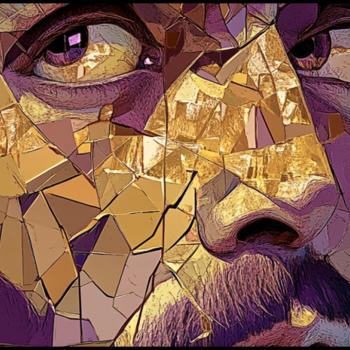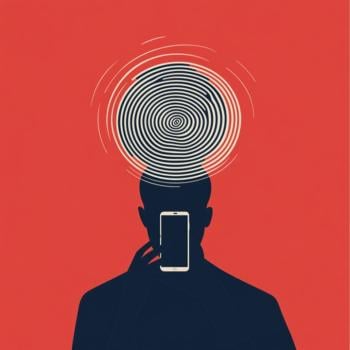
My friend Kim Cowling shared this fascinating article with our Square 2 group a few weeks ago and it really helped us to connect a few dots about why Deconstructing is so necessary and healthy for those who have been brainwashed by the cult of American Christianity.
Out of 17 Cognitive Distortions identified in the post [FOUND HERE], she found that 10 of them were things she experienced in Evangelical Church.
They are:
-Magnifying mistakes
-Overuse of “should” statements
-Black-and-white thinking
-Double standards
-Believing life is fair and people deserve what they get.
-Control fallacy
-Change fallacy
-Assuming they are always right (inability to exhibit healthy self doubt)
-Heaven’s reward fallacy
-The *opposite* of the self-serving bias — thinking they are only responsible for their setbacks and only God is responsible for their successes.
Let’s take a closer look and see if any of these ring true with your own Evangelical Church experience:
–Magnifying mistakes: Magnifying the negative and minimizing the positive.
The most obvious example here would be the Church’s tendency to magnify our sinfulness and wretchedness over our original goodness. This is what I have termed “Worm Theology” and it is one of the major problems I see embedded in American Christianity today. It has permeated almost every Hymn and Worship Song, every sermon and Sunday School lesson, and has become one of the primary obstacles that people have to re-wire their brains to overcome as they shed that toxic self-image and embrace the reality that Christ is alive in them, God’s love for them is unconditional and unbreakable, and their identity is firmly rooted in their connection with a God who is Love and in whose image we are all created.
-Overuse of “should” statements: Subjective demands of how things should or must be.
Sound familiar? Not only do most Churches today continually “should” on people, they’ve trained them to “should” on themselves using guilt, shame and fear to manipulate them into doing more, giving more, serving more and sacrificing their own mental and emotional health for the ministry [which usually just translates to “what’s good for our local Christian franchise”].
-Black-and-white thinking: This is also known as “Splitting” where everything is either totally perfect or completely awful, with no gray areas in-between.
This is when everything you do or say or experience or discuss is either Holy or Evil, with no room for anything in the middle. This way of thinking allows you to put everything in a Good/Bad category, and supports the Us/Them duality that American Christianity thrives on.
-Double standards: Holding incongruent standards for yourself versus others around you.
Oh yes. Christian Churches are notorious for holding other religions to higher standards than they expect of themselves, and often excuse their own failures and sinfulness easily while offering little to know grace or mercy for those “other people” who sin differently than they do.
-Believing life is fair and people deserve what they get.
This is especially true whenever Christians blame the poor or the homeless for their situations without attempting to put themselves in the shoes of those who are struggling. It’s also true when Christians celebrate natural disasters or the spread of certain diseases because they believe those are examples of God’s judgement on those sinners who deserved whatever suffering they endured. When bad things happen to them, it’s Satan. When bad things happen to others, it’s God’s perfect will.
-Control fallacy: Believing you or others are at fault for something that’s completely uncontrollable.
See above for examples, but it’s also when bad things happen to us or others around us and we attribute those things to some secret sin or lack of faith, rather than admit that bad things happen to everyone and no one is necessarily to blame for bad luck or unavoidable accidents.
-Change fallacy: Wanting others to change to meet your standards.
Otherwise known as “Christianity 101.”
-Assuming they are always right (inability to exhibit healthy self-doubt): Never wanting to admit when you’re wrong.
Some Christians have made an art of this one, especially when it comes to obvious mistakes or contradictions in the Scripture, or inconsistencies in their own theology.
-Heaven’s reward fallacy: The false belief that hard work always pays off or that all sacrifices or compromises you make should be rewarded.
This one is evident in various ways. You can probably think of a few of your own, but in my experience this has played out most often in the area of judging immigrants or the homeless [as if “working hard” or “getting a job” equals success for everyone], or sometimes when talking about how being faithful to God/Church somehow protects you from getting sick, losing your job, etc.
-The *opposite* of the self-serving bias — thinking they are only responsible for their setbacks and only God is responsible for their successes.
In the article, Self-Serving Bias is when you think you’re responsible for your success, but not your setbacks. In the Christian Church, this is reversed. Only God should receive credit for our blessings, and only we are responsible for the bad things in our lives [because we’re filthy worms who don’t deserve anything good to happen to us, ever].
So…what do you think? Have you experienced any of these 10 Cognitive Distortions in your Christian Church experience? Maybe there are a few more you could add to this list. I’d love to hear your comments below.
**
Keith Giles is the author of the 7-part best-selling “Jesus Un” book series from Quoir Publishing. His latest -and final book – in this series, Jesus Unarmed: How The Prince Of Peace Disarms Our Violence releases Nov. 9, 2021. Keith is also the host of Second Cup with Keith [a new solo podcast releasing Nov. 15 on the Ethos Radio App, and on Spotify, Apple and Google podcast platforms]; and the Heretic Happy Hour Podcast [along with co-hosts Matthew Distefano, Dr. Katy Valentine, and Derek Day], and the new Imaginary Lines YouTube Channel with poet Darrell Epp. He and his wife, Wendy, currently live in El Paso, TX and work with Peace Catalyst International.













